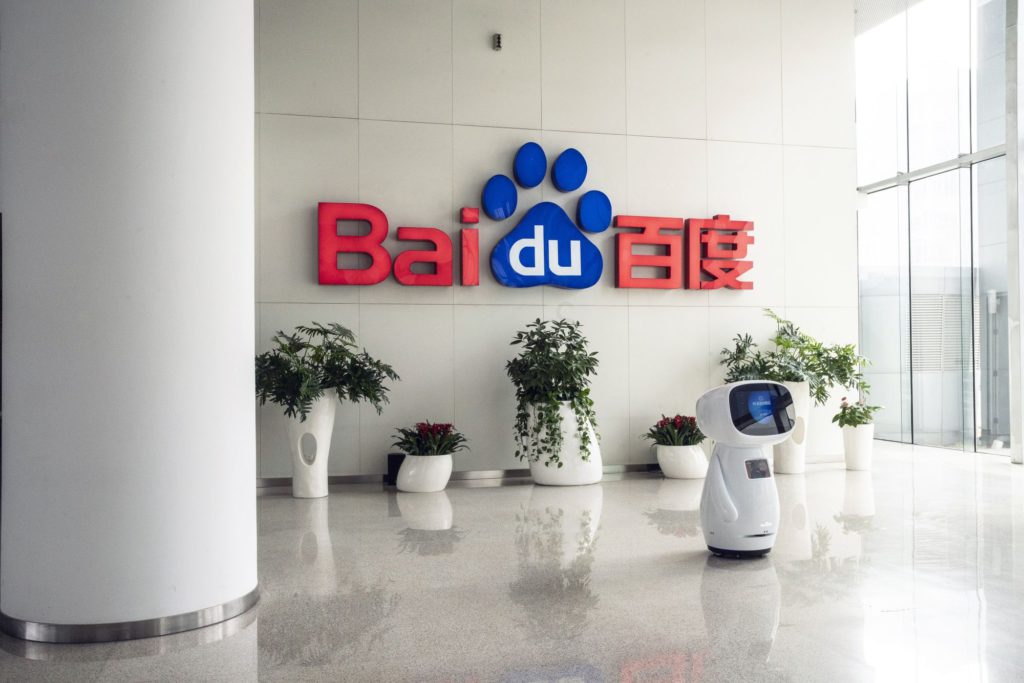(Bloomberg) — Baidu Inc.’s revenue beat estimates after efforts to monetize artificial intelligence technology helped offset losses in ad sales triggered by China’s economic slowdown.
Revenue for the December quarter came in at 33.1 billion yuan ($5.2 billion), compared with the 32.2 billion yuan average estimate.
Revenue from non-advertising businesses, including its cloud segment, surged 63% in the three months, versus growth of just 1% in online marketing.
China’s internet search leader is in the midst of a transition from an online marketing company to a hard-tech supplier in arenas from self-driving vehicles to the cloud and chips.
The country’s weakening economy, coupled with Beijing’s crackdown on private sectors from education to property, has hammered Baidu’s core search-advertising division, while the commercialization of its AI tech needs time.
Net income plunged to 1.7 billion yuan from 5.17 billion yuan a year earlier, underscoring the challenges for the internet giant.
“The weakness in China’s economy has negative impacts on its short-term growth,” TH Capital analyst Tian X.
Hou said in a note before the results. “However, looking beyond the current quarter, we believe BIDU’s autonomous EV initiatives are likely to bring new growth and better valuation to the stock.”
Baidu is planning to mass-produce its electric vehicles in 2023, with a prototype to be unveiled next month.
It’s also testing a driverless ride-hailing service in big cities like Beijing and Guangzhou, while expanding a nascent chip business beyond just in-house applications. Those efforts coincide with President Xi Jinping’s call to make China self-sufficient in key technologies, at a time when his administration has grown weary of a decade of heady expansion in consumer internet.
While Baidu isn’t a major target of China’s tech crackdown, regulatory uncertainties as well as intensifying competition with online content hubs offered by the likes of Tencent Holdings Ltd.
and ByteDance Ltd. could weaken the prospects for Baidu’s search-feed app and Netflix-style offshoot IQiyi Inc. In December, the streaming service raised subscription fees by up to 20% after user growth plateaued.
IQiyi reported flat but better than expected revenue, and predicted it would reach break-even on a non-GAAP operating income basis in fiscal 2022.
(Updates with details on revenue growth from the second paragraph)
More stories like this are available on bloomberg.com
©2022 Bloomberg L.P.











